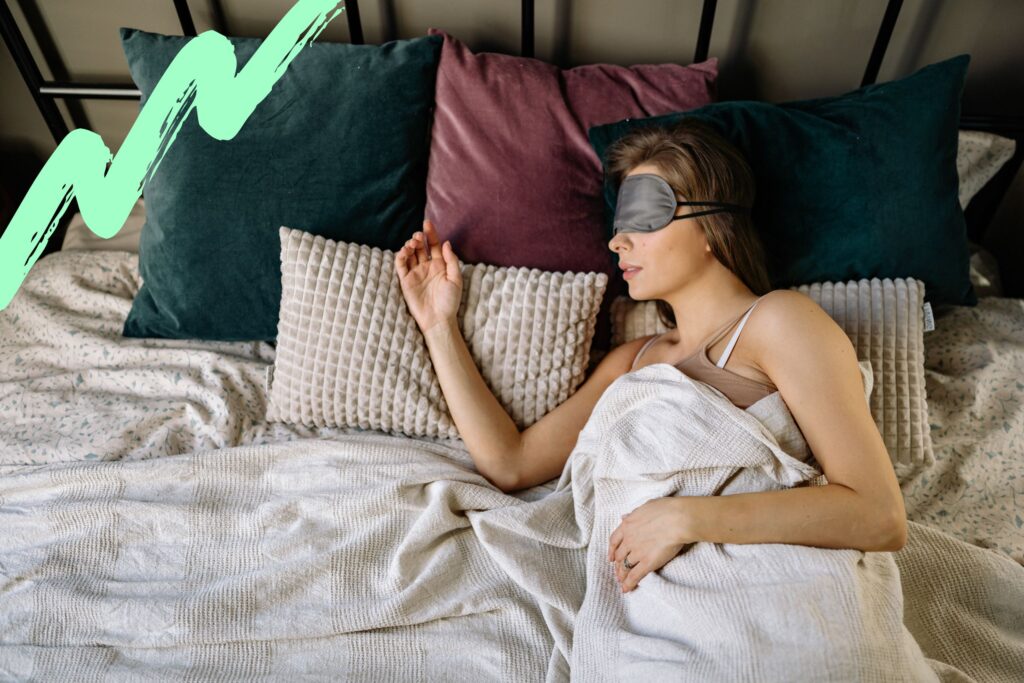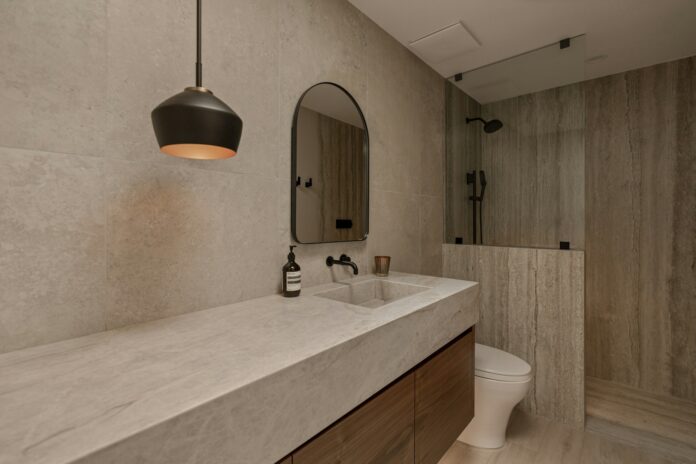Rest and relaxation are fundamentally important, both for the purposes of alliteration, but more importantly, to our health and happiness. Creating a bedroom that encourages both can be transformative. Trust us; if you’re reading these words through bleary eyes and your fifth coffee of the morning, then a few physical adjustments to your bedroom space might be the answer to a question you weren’t aware you’d posed.
If things are all feeling a bit cryptic and you’re seeking clarity, then read on; here’s how to create the IDEAL bedroom setup for sleep in 5 simple steps.
Get The Temperature Right
Sure, aesthetics are so important when nurturing that perfect bedroom environment for sleep, but really, focusing on a multisensory approach is your quickest path to a deep night’s zeds. And one of the most important aspects of a sleep-friendly bedroom so often overlooked is its temperature.
According to The Sleep Council, a coolish temperature of between 16 and 18°C (60-65°F) is optimum for a restful, undisturbed night. Of course, in the UK our houses are rarely blessed with the precision temperature control that air conditioning brings, but by circulating fresh air in your room, especially in summer, you can really aid temperature control and sleep. All this requires is that you leave windows ajar or if you have children and are considered about safety, on a vent.
Blackout curtains can also help to keep rooms cool in summer and to hold heat in during the winter months, allowing for greater temperature regulation. Finally, having layered bedding will also help you to maintain the right body temperature according to the time of year, with sheets potentially providing enough cover for summer and an extra layer in winter. When combined with a mattress cooling system in the warmer months, you’re truly onto a winner temperature wise.
Using high quality linen can hit the right spot too, making you feel like you’re sleeping in a 5-star hotel bed at home. And who doesn’t want that?

Light Up My Life
A lamp or central light that has a dimming control is a massive aid to relaxation in a bedroom, setting the tone as you wind down and providing visual cues to that subconscious of yours to start preparing to shut down for a while.
Indeed, harsh lighting, particularly the blue stuff emitted by phones, tablets and laptop screens, tells us that it’s time to be alert and work focused, ready to respond to notifications and messages and generally doing everything in our power to damage our chances of a restful night’s sleep. Fight it. Ban phones, tablets and TVs from the bedroom, and make sure you’ve some task lighting via lamps and dimmers so you can engage ‘night time mode’ in the run up to bedtime.
Better still, consider hooking up an Amazon Alexa (other smart home hubs are available) in your bedroom to replace the various reasons you might need to reach for your phone as you settle down for the evening. Using the power of your voice alone, you can program her (it?) to dim the lights, read you a bedroom story, set you an alarm for the morning and so much more besides. You can find an Amazon discount code in the UK that could help with a reduction on the purchase.
You’ll also want to consider the density of your curtains. Thick curtains are great for blocking out any artificial exterior light and aiding extra rest in the mornings, especially when it gets light early. That said, it is worth remembering that allowing morning light to help wake us has been suggested to improve sleep quality and rhythms so you may not wish to block it entirely.
Read: How to feel more energised in the morning

Out Of Sight, Out Of Mind
Distraction and debris are the enemy of a restful, sleep-focused winding down before bed. We’ve all had to leap up and out of bed to close ‘that wardrobe door’ before settling down, and some things like that will never change, but when there’s serious clutter in your room, it can affect your quality of sleep negatively.
Out of sight, out of mind is a positive mindset in the bedroom, and streamlining your space can help you relax more easily when you slip between the sheets, free from distraction. That ideally means taking some time to ensure it is free of anything that causes you anxiety such as unattractive furniture or decoration, clutter or unnecessary items, particularly work paraphernalia which has unfortunately invaded the domestic setting with increased enthusiasm the recent years.
Only have in your bedroom items that need to be there. Ideally, anything related to work should be kept elsewhere. If a lack of space means you have to have extraneous items in the bedroom, then you’re going to need to get creative with your storage space. Consider divan beds, which provide additional room for storage below the mattress.
Clothes intent on making a break for freedom from the confines of the cupboard also need to be restrained if you’re to sleep soundly. Buy a linen basket that is large enough to contain what you need it to – if it is constantly overflowing you’re likely to find it annoying and stressful as you try to shut off for the day.
Keep On Top Of Low Level Maintenance
Transforming a bedroom into a beautiful space is one thing, but keeping it that way can be more challenging. And let’s face it; you’re unlikely to be able to unwind in a room which feels like it’s falling apart.
Give yourself the sleep you deserve by keeping on top of all those low level maintenance and repair jobs about the room that are just so easy to ignore in favour of larger tasks in the home. Just imagine the deep sleep you could achieve knowing your bedroom door isn’t squeaking, the streaks on your window have been wiped clean, and your chest of drawers finally stands straight without wobble. All you need is some wd40, a bottle of distilled vinegar and a cloth, and a spirit level. Good luck!
Aromatherapy
Way back when, at the start of this article when we were still finding our feet and feeling our way, we mentioned taking a multisensory approach to the ideal bedroom environment for sleep. Well, we haven’t forgotten sowing those seeds, and we’re going to finish up by talking about the power of smell on soothing you and nurturing an atmosphere of sleep positivity.
Chamomille and lavender scents are particularly evocative of peace and tranquillity, and aromatherapy oils such as bergamot, lavender, roman chamomile and marjoram dropped in a warm bath, just before bed, can be really soothing and get you geared up for sleep. Alternatively (or in addition to, let’s not mess about here), a few drops of lavender oil on your pillow at bedtime can nurture a peaceful mood.
You could even introduce a couple of houseplants to your bedroom which give off an aroma conducive to rest; jasmine potpourri has a gorgeous, mellow scent and aloe vera is even said to cleanse the air in your bedroom. Result!





